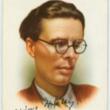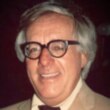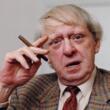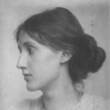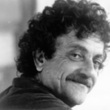1984
Author
Series
Publisher
Varies, see individual formats and editions
Publication Date
Varies, see individual formats and editions
Language
English
Appears on these lists
Description
Portrays life in a future time when a totalitarian government watches over all citizens and directs all activities
More Details
Contributors
ISBN
9780451524935
9798874816322
9780451518651
9780452262935
9780374285005
9780679417392
9780547249643
9780451519849
9781483050928
9781328869333
9780151660384
9780606001991
9780899663685
9780452284234
9798874816322
9780451518651
9780452262935
9780374285005
9780679417392
9780547249643
9780451519849
9781483050928
9781328869333
9780151660384
9780606001991
9780899663685
9780452284234
Appears on these lists
Similar Titles From NoveList
NoveList provides detailed suggestions for titles you might like if you enjoyed this book. Suggestions are based on recommendations from librarians and other contributors.
These bleak, thought-provoking dystopian fiction novels depict totalitarian states that control their citizens through fear and propaganda. Both the haunting and unconventionally structured Freedom Artist and George Orwell's classic novel 1984, revolve around damaged romantic relationships and acts of resistance. -- Alicia Cavitt
Both 1984 and Brave New World are seminal character-centered dystopian novels; each portrays a grim view of a totalitarian future society in which those who do not fit in are subjected to severe punishment. -- Krista Biggs
These dystopian science fiction novels show citizens living under constant surveillance. The government is watching in bleak, disturbing 1984 while commercial interests keep tabs in the darkly humorous Qualityland. Both books offer provocative, grim, thought-provoking views of the near future. -- Alicia Cavitt
Both of these character-centered dystopian novels portray grim views of totalitarian future societies that force individualists to conform. 1984 details a generally oppressive government, while the The Handmaid's Tale focuses particularly on the subjugation of women. -- Krista Biggs
These chilling dystopian novels are critical of both the government and of human nature. In Blindness the residents of an unnamed city are exposed to a plague that makes them lose their vision; 1984 explores life under a totalitarian regime. -- Victoria Fredrick
Julia is a retelling of George Orwell's novel 1984 that centers on Winston Smith's love interest. Both character-driven stories are set in the same dystopian world and revolve around resisting totalitarianism. Like 1984, Julia is thought-provoking, bleak, and disturbing. -- Alicia Cavitt
These disturbing dystopian literary fiction novels utilize near-future settings to emphasize the cost of eroding freedoms. The novel 1984 focuses on propaganda and misinformation while Chain-Gang All-Stars centers on the private prison industry, capitalism, ratings-driven media, and the exploitation of Black talent. -- Alicia Cavitt
The Comedians and 1984 explore the nature and risks of individual action and responsibility in unjust societies; the first occurs in a realistic Haiti; the second portrays a remote future in England -- but they both critique uncontrolled authority. -- Krista Biggs
Inventive language adds zip to both works of social science fiction, although Munmun has more dark satirical humor than the bleak 1984. Both are eminently thought-provoking and discussion-worthy, while also creating compelling near-future worlds. -- Autumn Winters
A man's romance-inspired defiance of menacing, repressive governments in bleak futures are the themes of these compelling novels. Control of language and monitors that both broadcast to and spy on people are key motifs. Both are dramatic, haunting, and thought-provoking. -- Matthew Ransom
Protagonists caught-up in the penal systems of futuristic totalitarian societies are the focus of these disturbing, thought-provoking, and issue-oriented novels. Though both are violent and haunting, 1984 is more bleak and menacing while Clockwork Orange is more poetic and darkly humorous. -- Matthew Ransom
While the satire-tinged Normal speculates on a nascent surveillance state and 1984 presents a fully formed totalitarian nightmare, both bleak dystopian novels conjure ugly futures where personal privacy is revoked by the state. Each is a stark warning against societal complacency. -- Mike Nilsson
Similar Authors From NoveList
NoveList provides detailed suggestions for other authors you might want to read if you enjoyed this book. Suggestions are based on recommendations from librarians and other contributors.
Like George Orwell's works, Octavia E. Butler's stories illuminate bigger social concepts. Her characters could sink to the same deplorable depths as the villains in Orwell's novels. Butler's work focused on race and sex as well as Orwell's pet themes of class and government. -- Katherine Johnson
George Orwell always acknowledged his artistic debt to Yevgeny Zamyatin's We, which Orwell read before writing the most famous of all dystopian novels, Nineteen Eighty-Four. Orwell's writing is grittier and bleaker, while Zamyatin opts for frantic satire, where quirky characters constantly try to prove their utopian happiness is not a fraud. -- Michael Shumate
Both George Orwell and Marc-Uwe Kling write darkly humorous, satirical political fiction about near-future dystopias where citizens live under constant surveillance. Flawed characters include animals and sentient robots who exhibit human weakness and self-serving tendencies. Orwell focuses on totalitarianism, Kling on consumerism and political manipulation. -- Alicia Cavitt
Though Nana Kwame Adjei-Brenyah's work has a sardonic edge not found in George Orwell's, both are known for their thought-provoking, somewhat bleak stories that frequently employ dystopian settings and satire to explore contemporary societal problems. -- Stephen Ashley
George Orwell and Aldous Huxley are usually mentioned in the same breath, mainly because of Huxley's Brave New World and Orwell's Nineteen Eighty-Four. Both novels, and both writers' other works, present a cautionary vision of the future. These authors also share straightforward writing style and issue-driven plots. -- Katherine Johnson
While Tabish Khair writes in a variety of other genres as well, he and George Orwell are known for their thought-provoking, dystopian works of satire that explores the ways in which society fails large groups of people. -- Stephen Ashley
Stylistically, Saramago is not similar to Orwell. But Orwell's readers will appreciate the clarity of thought and immediacy of tone. Like Orwell, Saramago uses fantastical elements to illuminate weighty social issues such as religion and nationalism. -- Katherine Johnson
Invasions of privacy and hunger for power are common themes in George Orwell's and Kaie Kellough's compelling works of dystopian satire. Orwell's catalog is entirely prose, while Kellough is also known for his poetry. -- Stephen Ashley
Margaret Atwood and George Orwell are favorites of literary fiction fans for their thought-provoking novels; both writers are notable for their sophisticated prose and compelling story delivery, as well as their attention to people and society. Both also have used science fiction as a device for presenting their political insights. -- Katherine Johnson
Both George Orwell and Arthur Koestler wrote disturbing, dark books in which bad things happen to perfectly nice people. Both writers also paid careful attention to language, producing exquisite literary fiction with political depth. Koestler's Darkness at Noon vies with Orwell's Nineteen Eighty-Four as the quintessential anti-totalitarian novel. -- Katherine Johnson
These authors' works have the appeal factors disturbing, and they have the genres "classics" and "dystopian fiction"; the subjects "dystopias," "totalitarianism," and "near future"; and characters that are "introspective characters."
These authors' works have the appeal factors bleak and leisurely paced, and they have the genres "dystopian fiction" and "satire and parodies"; the subjects "dystopias," "totalitarianism," and "near future"; and characters that are "introspective characters" and "complex characters."
Published Reviews
Booklist Review
Winston hates the system, hates Big Brother. He knows that his rebellion puts him in terrible danger and that the Thought Police will find him.
From Booklist, Copyright (c) American Library Association. Used with permission.
Powered by Syndetics
Reviews from GoodReads
Loading GoodReads Reviews.
Staff View
Loading Staff View.


























